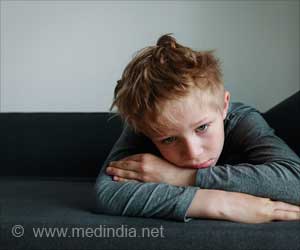the study analysed 700 children with a median age of 9 years from the Penn State following them up to adolescents defining insomnia as moderate-to-severe difficulties initiating or maintaining sleep.
‘Persistent insomnia symptoms since childhood associated with mood, anxiety disorders.’
“We found that about 40% of children do not outgrow their insomnia symptoms in the transition to adolescence and are at risk of developing mental health disorders later on during early adulthood,” said lead author Julio Fernandez-Mendoza, who has a doctorate in psychobiology and is an associate professor at Penn State College of Medicine.
The presence of internalizing disorders is defined as a self-report of a diagnosis or treatment for mood and/or anxiety disorders and results were adjusted for sex, race/ethnicity, age, and any prior history of internalizing disorders or use of medications for mental health problems.
Results show that insomnia symptoms persisting from childhood through adolescence and into adulthood were associated with a 2.8-fold increased risk of internalizing disorders; newly developed Insomnia symptoms were associated with a 1.9-fold increased risk of internalizing disorders and no increased risk of internalizing disorders in children with remitted insomnia symptoms.
These findings indicate that early sleep interventions can prevent future mental health problems in children with persistent insomnia symptoms.
Source: Medindia



